SEO
System Builders – How AI Changes The Work Of SEO
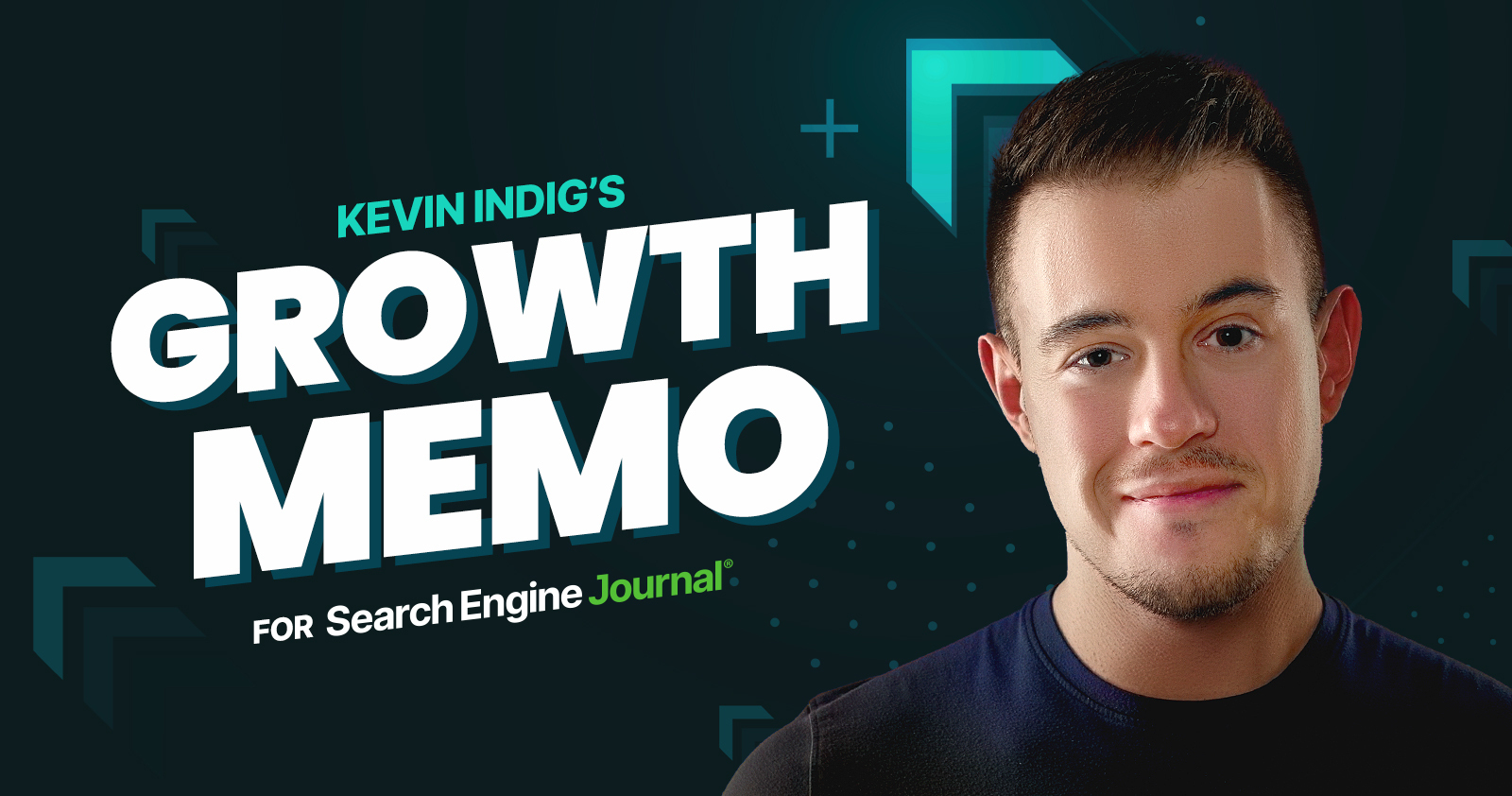
AI is terraforming tech. The content and SEO ecosystem is undergoing a massive structural change.
Human-written content gains value faster for LLM training than for end consumers as the pure profit licensing deals between LLM developers and publishers show.
Publishers struggle to survive from digital subscriptions but get millions that go straight to their bottom line for providing training data.
Content platforms, social networks, SaaS companies and consumer apps coat their products with AI. A few examples:
- Spotify DJ (AI-generated playlist).
- AI Overview (AI answers in Google Search).
- Instagram AI personas (celebrity AI chatbots).
- Ebay’s magical listing (turn a photo into a listing).
- Redfin Redesign (try interior designs on real house pictures).
The quality of machine-generated content (MGC) challenges human-generated content (HGC). I ran an experiment with my Twitter and LinkedIn followers: I asked them to choose which of two articles was written by a human and which by a machine – and they had to explain their answer.
Only a handful of people figured out that AI wrote both pieces. I intentionally framed the question in a leading way to see if people would challenge the setting or believe that one piece was written by a human if told so.
- Not an isolated experiment: A survey of 1,900 Americans found that 63.5% of people can’t distinguish between AI content and human content.1
- People seek help: Google search demand for [ai checker] has reached 100,000 in May 2024 (Glimpse).
- Dark side: scammers use MGC to make money, as 77% of AI scam victims lost money.2
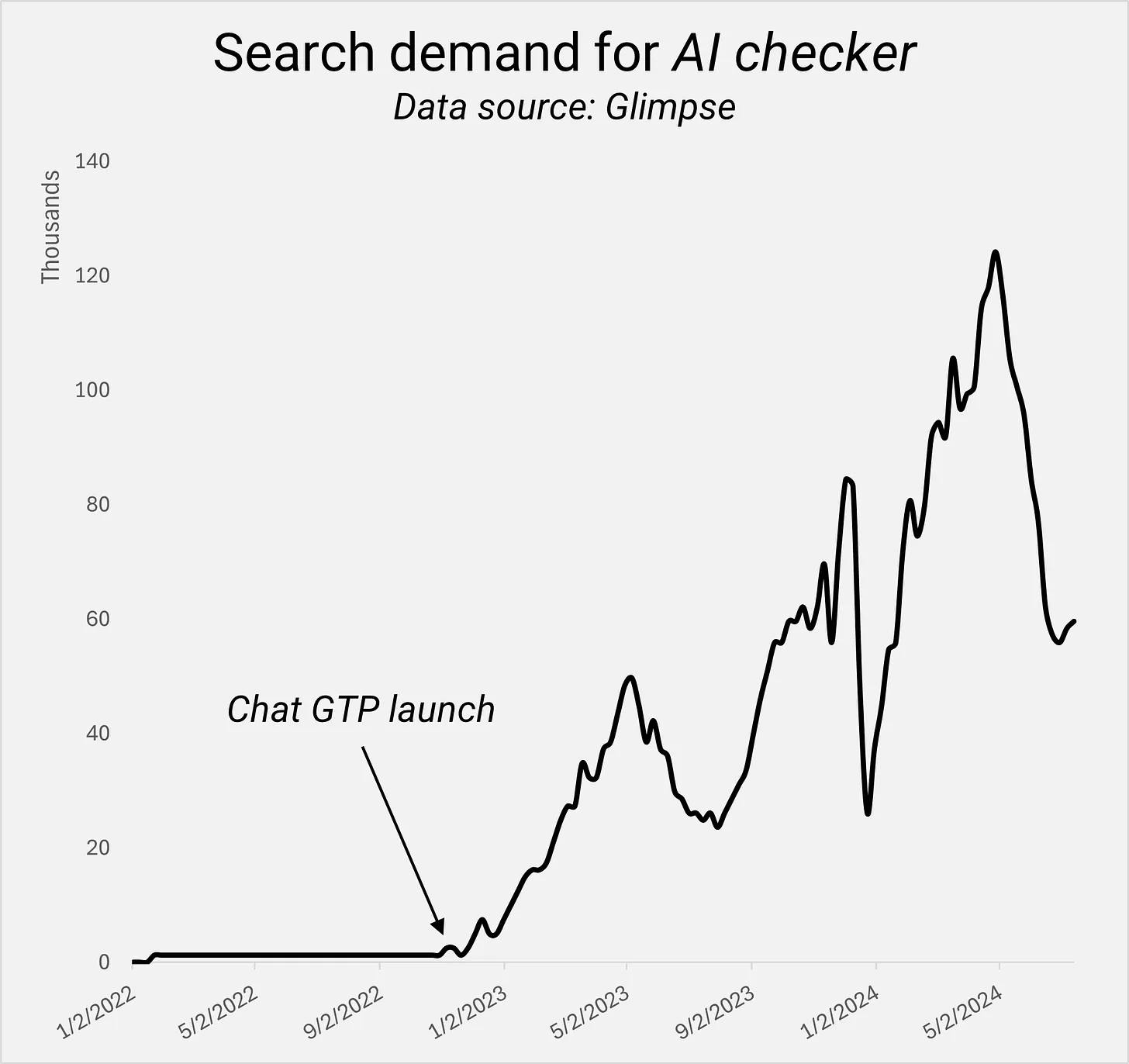 Image Credit: Kevin Indig
Image Credit: Kevin IndigThe quality level of LLMs pushes SEO work towards automating workflows and learning with AI, while writers will take content from good to great instead of zero to one.
Boost your skills with Growth Memo’s weekly expert insights. Subscribe for free!
 Image Credit: Lyna ™
Image Credit: Lyna ™System Builders
Clients, podcasters and panel hosts often ask me what skills SEOs need to build for the AI future. For a long time, my answer was to learn, stay open-minded and gain as much practical experience with AI as possible.
Now, my answer is SEOs should learn how to build AI agents and workflows that automate tasks. AI changes the way search works but also the way SEOs work.
AI + No-code Allows SEOs To Automate Workflows
A few examples:
1/ Cannibalization
- Old world: SEOs download search console data and create pivot tables to spot keyword cannibalization.
- New world: SEOs build an AI workflow that sends alters, identifies true keyword cannibalization, makes content suggestions to fix the problem, and monitors the improvement.
2/ Site Crawling
- Old world: SEOs crawl websites to find inefficiencies in internal linking, status code errors, duplicate content, etc.
- New world: SEOs build an AI agent that regularly crawls the site and automatically suggests new internal links that are shipped after human approval, fixes broken canonical tags and excludes soft 404 errors in the robots.txt.
3/ Content Creation
- Old world: SEOs do keyword research and write content briefs. Writers create the content.
- New world: SEOs automate keyword research with AI and create hundreds of relevant articles as a foundation for writers to build on.
All of this is already possible today with AI workflow tools like AirOps or Apify, which chain agents and LLMs together to scrape, analyze, transform data or create content.
Moving forward, we’ll spend much more time building automated systems instead of wasting time on point analyses and catalogs of recommendations. The SEO work will be defining logic, setting rules, prompting and coding.
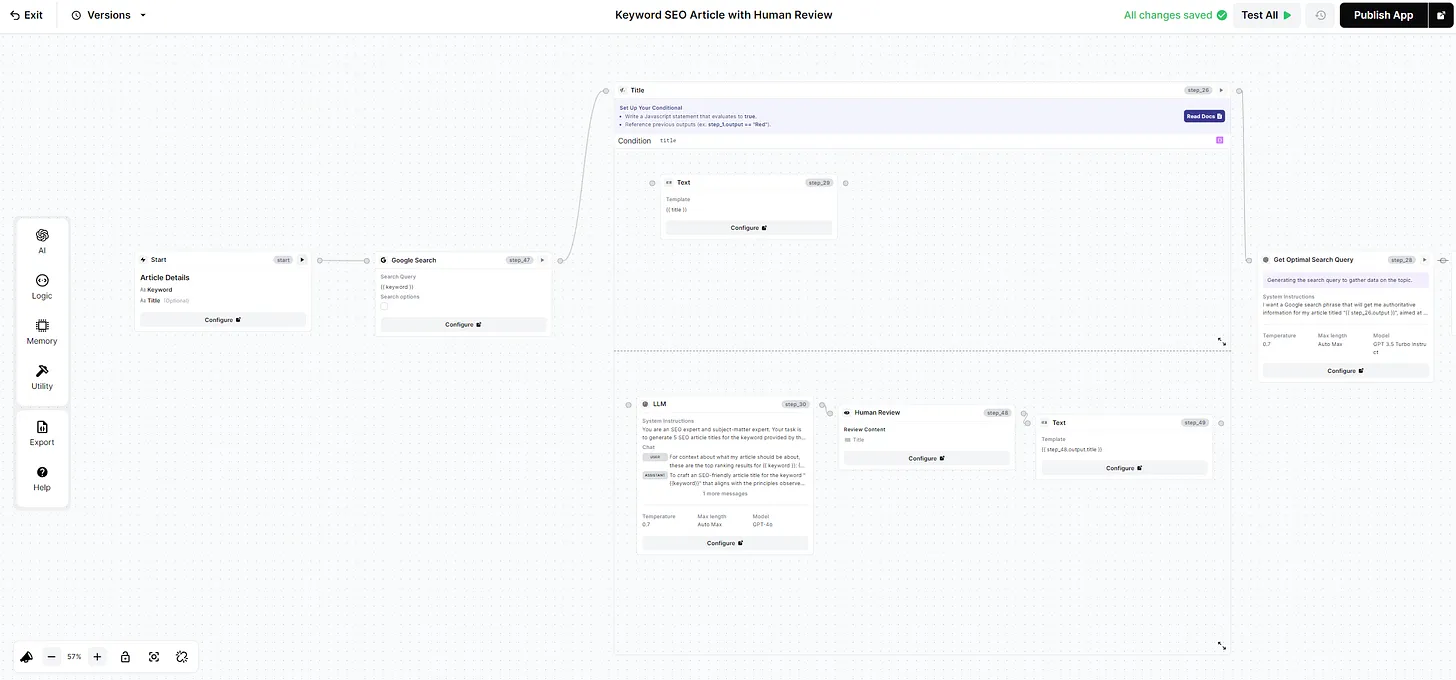 Building workflows with AirOps (Image Credit: Kevin Indig)
Building workflows with AirOps (Image Credit: Kevin Indig)You Can Learn (Almost) Anything With AI
I never made the time to really learn Python or R, but with the help of Chat GPT and Gemini in Colab, I can write any script with natural language prompts.
When the script doesn’t work, I can paste a screenshot into Chat GPT and describe the issue to get a solution. AI helps with Regex, Google Sheets/Excel, R, Python, etc. Nothing is off-limits.
Being able to write scripts can solve problems like data analysis, a/b testing and using APIs. As an SEO, I’m no longer dependent on engineers, data scientists or writers to perform certain tasks. I can act faster and on my own account.
I’m not the only one to figure this out. People are learning to code, write and many other skills with AI. We can learn to build AI workflows by asking AI to teach us.
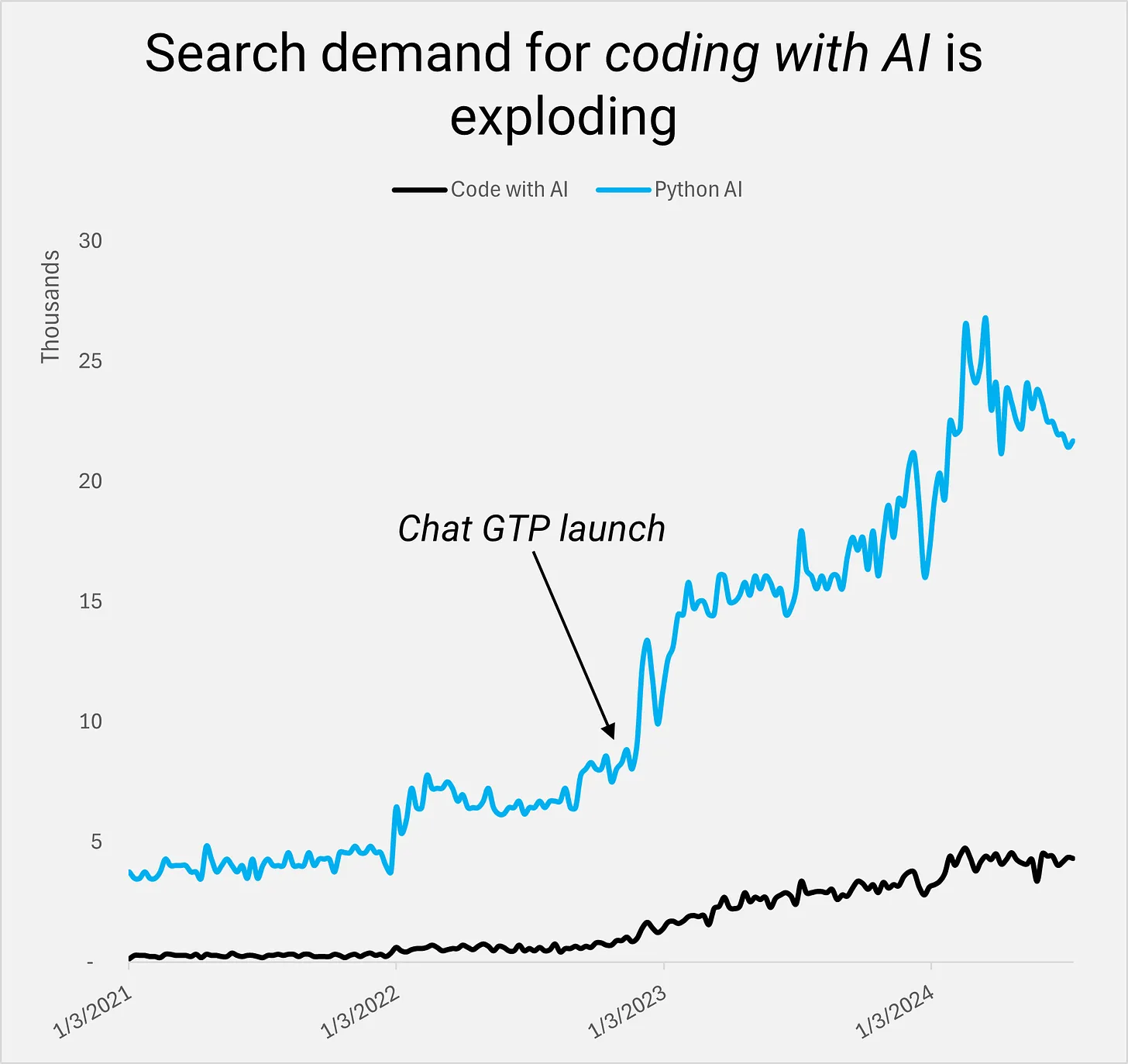 Image Credit: Kevin Indig
Image Credit: Kevin Indig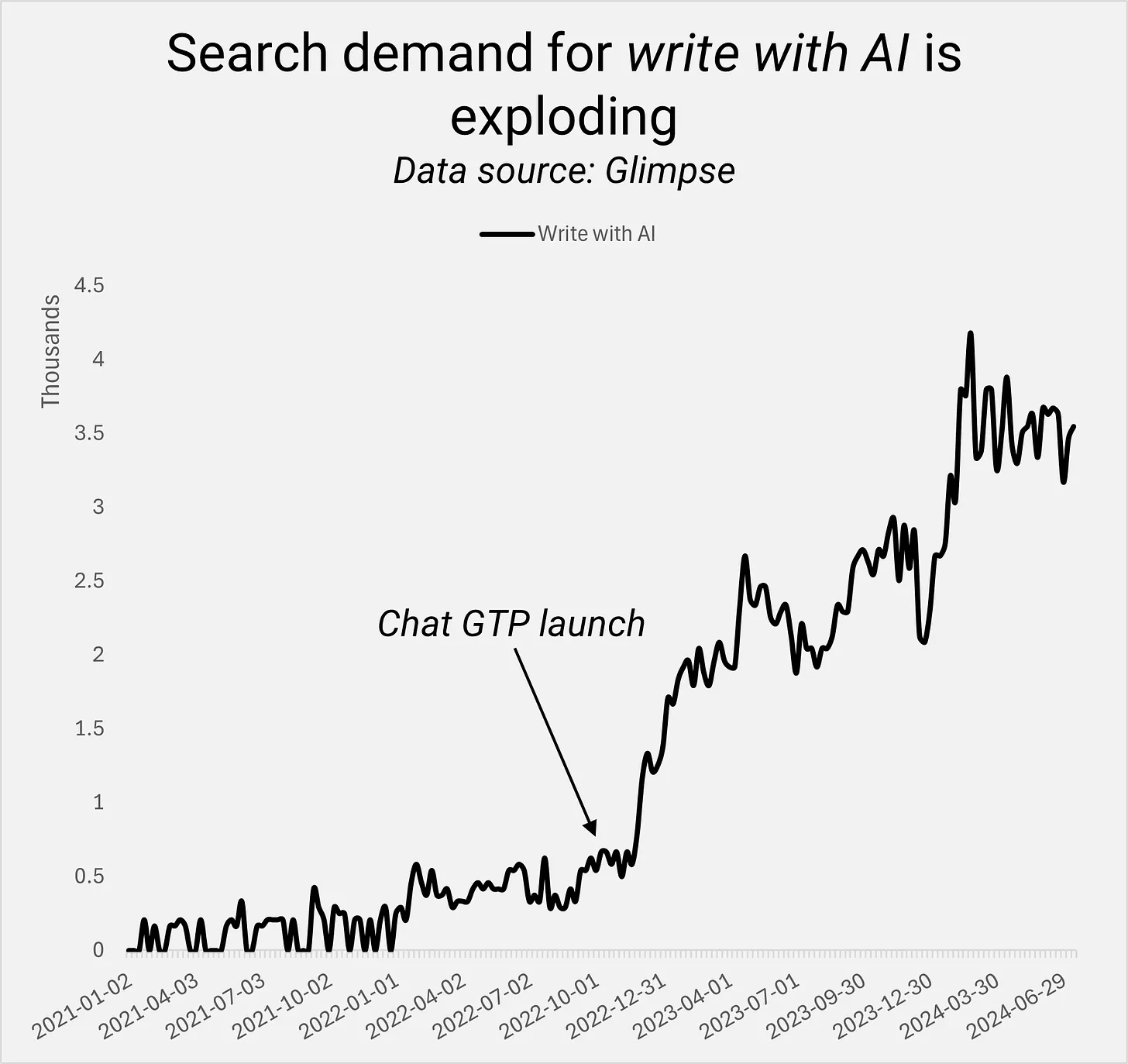 Image Credit: Kevin Indig
Image Credit: Kevin Indig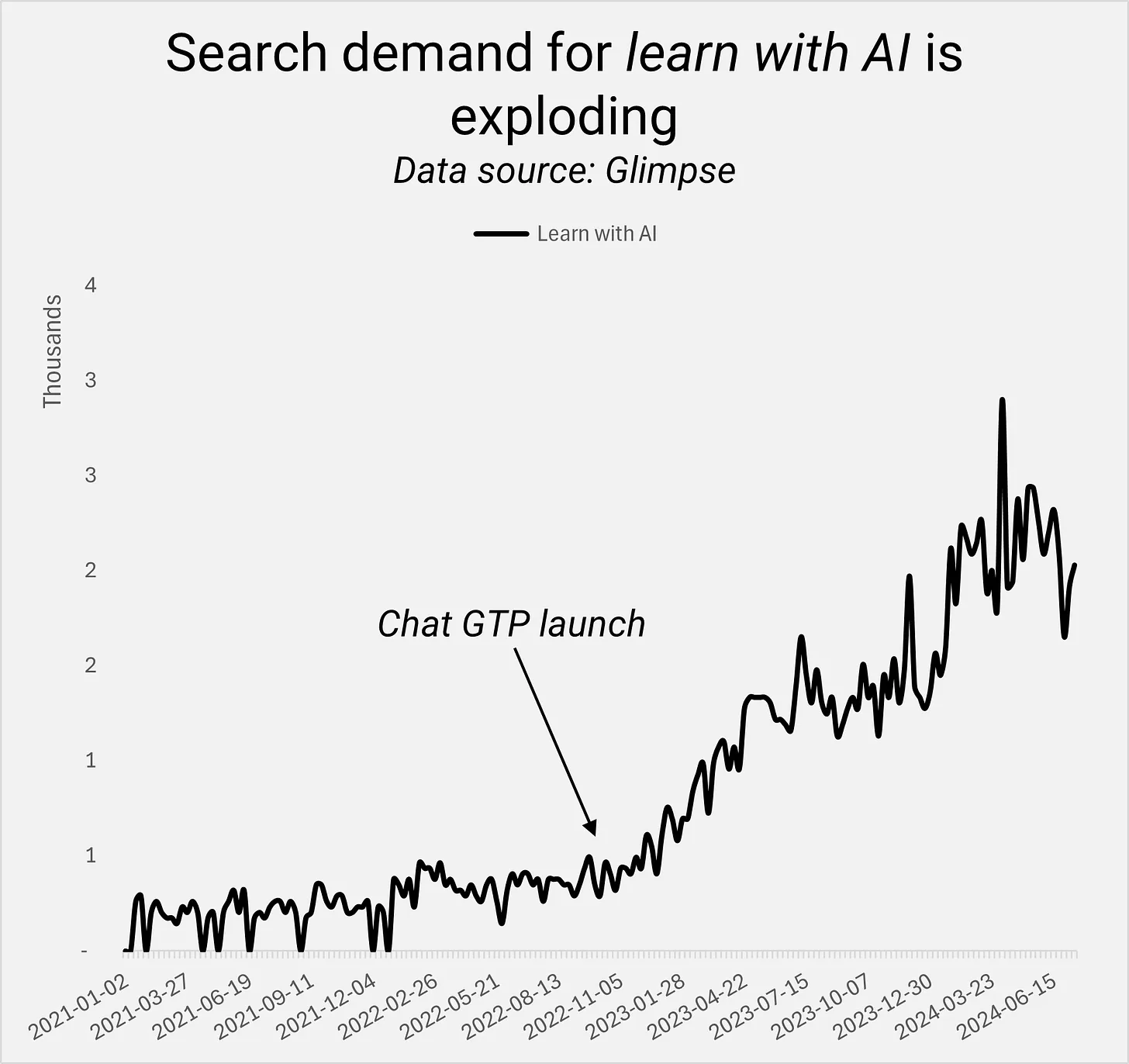 Image Credit: Kevin Indig
Image Credit: Kevin IndigWhen you can learn almost anything, the only limit is time.
The Work Of Writers Changes
Against common belief, writers won’t be crossed out of this equation but will play the critical role of editing, directing and curating.
In any automated process, humans QA the output. Think of car assembling lines. Even though AI content leaps in quality, spot checks reduce the risk of errors. Caught issues, such as wrong facts, weird phrasing or off-brand wording, will be critical feedback to fine-tune models to improve their output.
Instead of leg work like writing drafts, writers will bring AI content from good to great. In the concept of information gain, writers will spend most of their time making a piece outstanding.
The rising quality work spans from blog content to programmatic content, where writers will add curated content when searches have a desire for human experience, such as in travel.
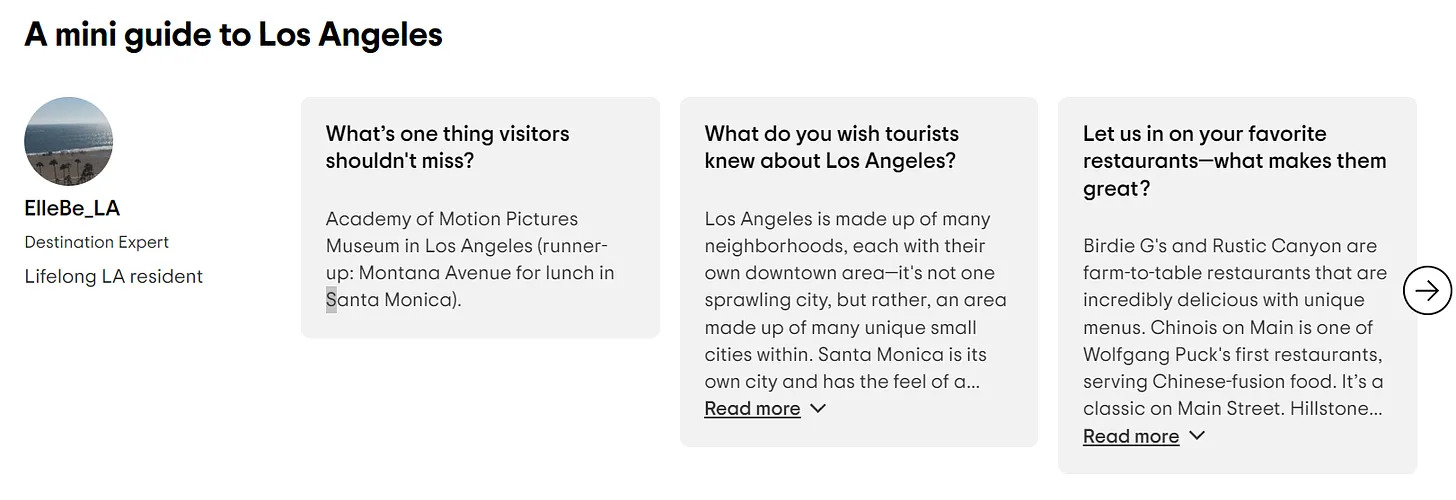 Tripadvisor’s attraction pages feature human-curated sections. (Image Credit: Kevin Indig)
Tripadvisor’s attraction pages feature human-curated sections. (Image Credit: Kevin Indig)Unfair Advantage
As often with new technology, a few first-mover people and companies get exponential value until the rest catch up. My worry is that a few fast-moving companies will grab massive land with AI.
And yet, this jump in progress will allow newcomers to challenge incumbents and get a fair chance to compete on the field.
AI might be a bigger game changer for SEOs than for Google. The raw power of AI might help us overcome challenges from AI Overviews and machine learning-driven algorithm updates.
But the biggest win might be that SEOs can finally make something instead of delivering recommendations. The whole value contribution of SEOs changes because my output can drive results faster.
Survey: ChatGPT and AI Content – Can people tell the difference?
Artificial Intelligence Voice Scams on the Rise with 1 in 4 Adults Impacted
Featured Image: Paulo Bobita/Search Engine Journal



![How AEO Will Impact Your Business's Google Visibility in 2026 Why Your Small Business’s Google Visibility in 2026 Depends on AEO [Webinar]](https://articles.entireweb.com/wp-content/uploads/2026/01/How-AEO-Will-Impact-Your-Businesss-Google-Visibility-in-2026-400x240.png)
![How AEO Will Impact Your Business's Google Visibility in 2026 Why Your Small Business’s Google Visibility in 2026 Depends on AEO [Webinar]](https://articles.entireweb.com/wp-content/uploads/2026/01/How-AEO-Will-Impact-Your-Businesss-Google-Visibility-in-2026-80x80.png)













